Intro
Human chorionic gonadotropin, or hCG, is a hormone produced during pregnancy that plays a crucial role in the development of the embryo. Understanding hCG levels is essential for pregnant women, as it can provide valuable insights into the health and progression of their pregnancy. In this article, we will delve into the world of hCG, exploring its significance, how it is measured, and what the results can indicate.
The importance of hCG levels cannot be overstated, as they can help identify potential complications early on, allowing for prompt medical intervention. Moreover, monitoring hCG levels can provide reassurance to expectant mothers, confirming that their pregnancy is progressing as expected. With the advancements in medical technology, it is now possible to measure hCG levels with high accuracy, enabling healthcare providers to make informed decisions about prenatal care.
As we explore the realm of hCG, it becomes clear that there is more to this hormone than meets the eye. From its role in implantation to its impact on pregnancy symptoms, hCG is a fascinating topic that warrants further investigation. Whether you are a pregnant woman, a healthcare provider, or simply someone interested in learning more about human biology, this article aims to provide a comprehensive overview of hCG levels, shedding light on the intricacies of this complex hormone.
Introduction to Hcg Levels
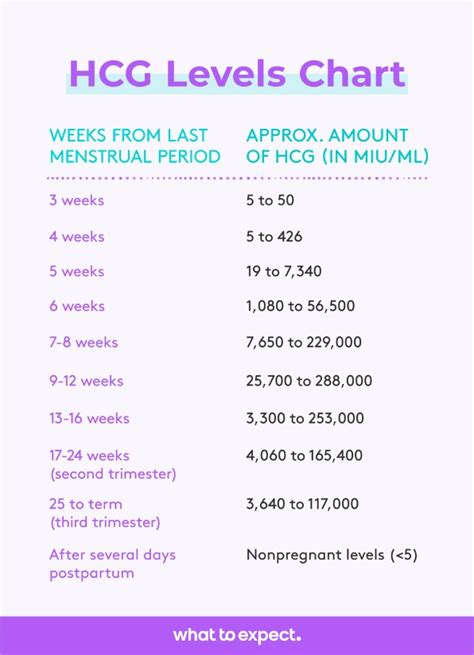
How Hcg Levels Are Measured
The measurement of hCG levels is a straightforward process that involves either a blood test or a urine test. Blood tests, also known as beta hCG tests, are more sensitive and can detect lower levels of the hormone. Urine tests, on the other hand, are less sensitive but can still provide accurate results. When interpreting hCG levels, healthcare providers consider various factors, including the gestational age of the embryo, the presence of any pregnancy complications, and the individual's overall health.Understanding Hcg Level Charts
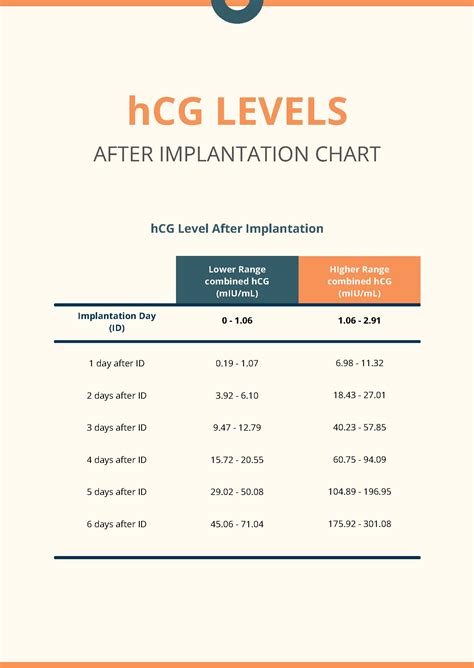
Interpreting Hcg Level Results
Interpreting hCG level results requires careful consideration of various factors, including the individual's medical history, the presence of any underlying health conditions, and the results of previous tests. In general, hCG levels are considered normal if they fall within the expected range for the gestational age. However, abnormal hCG levels can indicate potential complications, such as ectopic pregnancy, miscarriage, or chromosomal abnormalities.Hcg Level and Pregnancy Symptoms
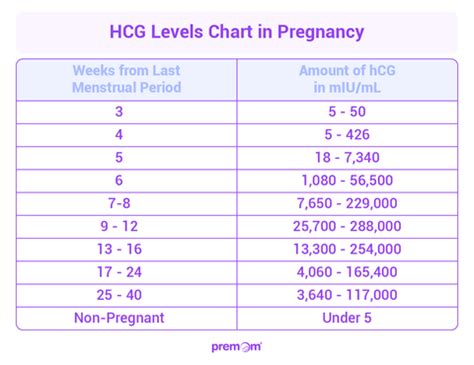
Hcg Level and Multiple Pregnancy
In cases of multiple pregnancy, hCG levels are often higher than average. This is because each embryo produces its own placenta, resulting in increased hCG production. However, it is essential to note that hCG levels can vary significantly between individual pregnancies, and high levels do not necessarily confirm a multiple pregnancy.Hcg Level and Pregnancy Complications
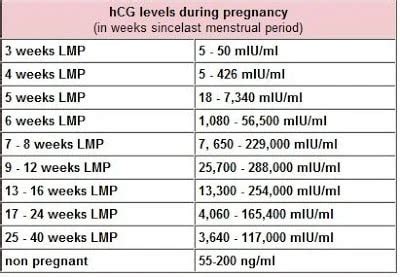
Hcg Level and Fertility Treatments
hCG levels play a crucial role in fertility treatments, such as in vitro fertilization (IVF). In these cases, hCG is often used to trigger ovulation, and its levels are closely monitored to ensure optimal timing of the procedure. By analyzing hCG levels, fertility specialists can adjust treatment protocols to maximize the chances of successful pregnancy.Hcg Level and Pregnancy Loss
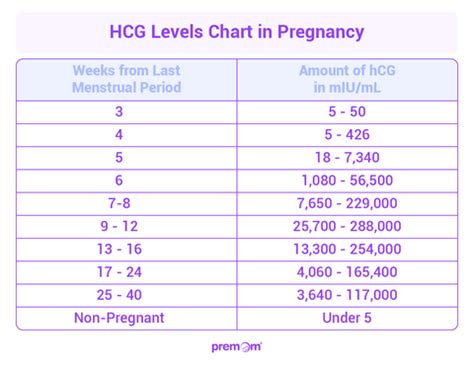
Hcg Level and Recurrent Pregnancy Loss
Women experiencing recurrent pregnancy loss may require closer monitoring of their hCG levels to identify potential underlying causes. In these cases, healthcare providers may recommend additional testing, such as genetic screening or hormone level analysis, to determine the underlying factors contributing to the recurrent losses.Hcg Level and Thyroid Function
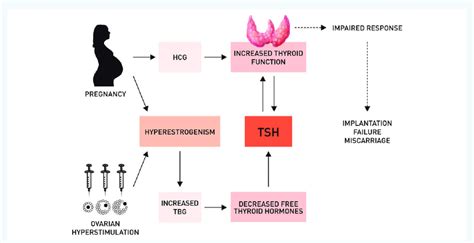
Hcg Level and Prenatal Care
Regular prenatal care is essential for monitoring hCG levels and ensuring the best possible pregnancy outcomes. By attending scheduled prenatal appointments, women can receive timely guidance and support, minimizing the risk of complications and promoting a healthy pregnancy.Hcg Level and Fetal Development
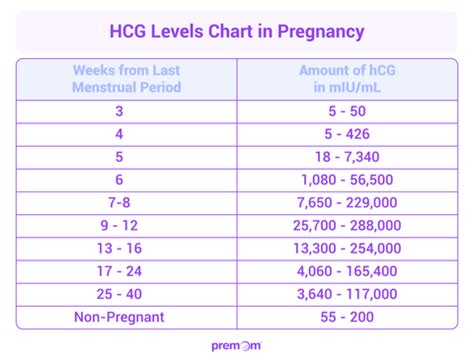
Hcg Level and Placental Function
The placenta plays a vital role in fetal development, and hCG levels can provide insights into placental function. In cases of placental insufficiency or other complications, hCG levels may be abnormal, indicating the need for closer monitoring and potential intervention.What is the normal range for hCG levels during pregnancy?
+The normal range for hCG levels during pregnancy varies depending on the gestational age. However, in general, hCG levels are considered normal if they fall within the range of 5-50 mIU/mL during the first trimester.
Can hCG levels predict the sex of the baby?
+No, hCG levels cannot predict the sex of the baby. While some studies suggest that hCG levels may be higher in pregnancies carrying female fetuses, this is not a reliable method for determining the sex of the baby.
What are the risks of high hCG levels during pregnancy?
+High hCG levels during pregnancy can increase the risk of pregnancy complications, such as preeclampsia, gestational diabetes, and placental abruption. However, it is essential to note that high hCG levels do not necessarily guarantee a complicated pregnancy.
Can hCG levels be used to diagnose pregnancy complications?
+Yes, hCG levels can be used to diagnose pregnancy complications, such as ectopic pregnancy, miscarriage, or chromosomal abnormalities. Abnormal hCG levels can indicate potential complications, allowing for prompt medical intervention.
How often should hCG levels be monitored during pregnancy?
+The frequency of hCG level monitoring during pregnancy depends on individual circumstances. In general, hCG levels are monitored regularly during the first trimester, with less frequent testing during the second and third trimesters.
As we conclude our exploration of hCG levels, it is clear that this hormone plays a vital role in pregnancy. By understanding the significance of hCG levels, pregnant women can gain valuable insights into their pregnancy and make informed decisions about their prenatal care. Whether you are a pregnant woman, a healthcare provider, or simply someone interested in learning more about human biology, we hope this article has provided a comprehensive overview of hCG levels and their importance in pregnancy. We invite you to share your thoughts, ask questions, or seek further guidance on this topic, and we look forward to continuing the conversation.
